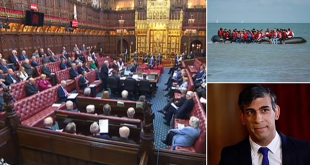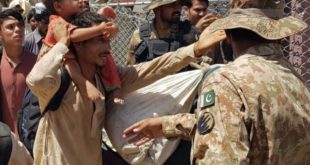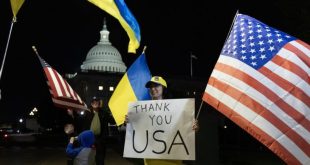Last week, Imran Khan, leader of Tehreek-e-Insaf, tweeted a Washington Post story in which Washington Post published an interview of Nawaz Sharif. This interview story was published in 1994. In this story, Nawaz Sharif claimed that Pakistan army is involved in heroin smuggling to the United States and some other countries. He claimed that Pakistan army smuggles drugs to pay the expenditures of its covert military operations.
Here is the full interview.
Pakistan’s army chief and the head of its intelligence agency proposed a detailed “blueprint” for selling heroin to pay for the country’s covert military operations in early 1991, according to former prime minister Nawaz Sharif.
In an interview, Sharif claimed that three months after his election as prime minister in November 1990, Gen. Aslam Beg, then army chief of staff, and Gen. Asad Durrani, then head of the military’s Inter-Services Intelligence bureau (ISI), told him the armed forces needed more money for covert foreign operations and wanted to raise it through large-scale drug deals.
“General Durrani told me, ‘We have a blueprint ready for your approval,’ ” said Sharif, who lost to Benazir Bhutto in elections last October and is now leader of the opposition in parliament.
“I was totally flabbergasted,” Sharif said, adding that he called Beg a few days later to order the army officially not to launch the drug trafficking plan.
Beg, who retired in August 1991, denied Sharif’s allegation, saying, “We have never been so irresponsible at any stage. Our politicians, when they’re not in office and in the opposition, they say so many things. There’s just no truth to it.”
Durrani, now Pakistan’s ambassador to Germany, said: “This is a preposterous thing for a former prime minister to say. I know nothing about it. We never ever talked on this subject at all.”
Brig. Gen. S.M.A. Iqbal, a spokesman for the armed forces, said, “It’s inconceivable and highly derogatory; such a thing could not happen.”
The interview with Sharif, conducted at his home in Lahore in May, was part of a broad investigation into narcotics trafficking in Pakistan. It marked the first time a senior Pakistani official has publicly accused the country’s military of having contingency plans to pay for covert operations through drug smuggling.
Officials with the U.S. State Department and the Drug Enforcement Administration said they have no evidence that Pakistan’s military is or ever has been involved in drug trafficking. But U.S. and other officials have often complained about the country’s weak efforts to curtail the spread of guns, money laundering, official corruption and other elements of the deep-rooted drug culture in Pakistan, which along with Afghanistan and Iran lies along the so-called Golden Crescent, one of the world’s biggest drug-producing regions.
In a scathing report two years ago, a consultant hired by the CIA warned that drug corruption had permeated virtually all segments of Pakistani society and that drug kingpins were closely connected to the country’s key institutions of power, including the president and military intelligence agencies.
About 70 tons of heroin is produced annually in Pakistan, a third of which is smuggled abroad, mostly to the West, according to the State Department’s 1994 report on international drug trafficking. About 20 percent of all heroin consumed in the United States comes from Pakistan and its northern neighbor, Afghanistan, the second largest opium producer in the world after Burma. The United Nations says that as much as 80 percent of the heroin in Europe comes from the region.
It has been rumored for years that Pakistan’s military has been involved in the drug trade. Pakistan’s army, and particularly its intelligence agency — the equivalent of the CIA — is immensely powerful and is known for pursuing its own agenda. Over the years, civilian political leaders have accused the military — which has run Pakistan for more than half its 47 years of independence — of developing the country’s nuclear technology and arming insurgents in India and other countries without their knowledge or approval and sometimes in direct violation of civilian orders. Historically, the army’s chief of staff has been the most powerful person in the country.
According to military sources, the intelligence agency has been pinched for funds since the war in Afghanistan ended in 1989 and foreign governments — chiefly the United States — stopped funneling money and arms through the ISI to Afghan mujaheddin guerrillas fighting the Soviet-backed Kabul government. Without the foreign funds, the sources said, it has been difficult for the agency to continue the same level of operations in other areas, including aiding militants fighting Indian troops across the border in Kashmir. Such operations are increasingly being financed through money raised by such private organizations as the Jamiat-i-Islami, a leading fundamentalist political party.
A Western diplomat who was based in Islamabad at the time of the purported meeting and who had occasional dealings with Beg and Durrani, said, “It’s not inconceivable that they could come up with a plan like this.”
“There were constant rumors that ISI was involved in rogue drug operations with the Afghans — not so much for ISI funding, but to help the Afghans raise money for their operations,” the diplomat said.
In the interview, Sharif, claimed that the meeting between him and the generals occurred at the prime minister’s official residence in Islamabad after Beg called one morning and asked to brief him personally on a sensitive matter.
“Both Beg and Durrani insisted that Pakistan’s name would not be cited at any place because the whole operation would be carried out by trustworthy third parties,” Sharif said. “Durrani then went on to list a series of covert military operations in desperate need of money.”
Sharif, in the interview, would not discuss operational details of the proposal and refused to disclose what covert plans the intelligence agency wanted to fund with the drug money.
Sharif said he had “no sources” to verify that the ISI had obeyed his orders to abandon the plan but that he assumed the agency had complied.
“I told them categorically not to initiate any such operation, and a few days later I called Beg again to tell that I have disapproved the ISI plan to back heroin smuggling.”
Embittered that his political enemies cut short his term as prime minister last year and helped engineer the return of Bhutto, Sharif has gone on an intense political offensive to destabilize her 10-month-old government. He claimed recently that Pakistan has a nuclear bomb and said he made the information public to prevent Bhutto from dismantling the program under pressure from the West. The government has denied possessing a nuclear bomb but repeated previous statements that it has the ability to build one.
Calling Sharif a “loose cannon,” a second Western diplomatic source said, “I’d have a hard time believing” his allegations about the military’s drug trafficking proposal. The official suggested that Sharif’s disclosure might be designed to keep Bhutto and Pakistan-India relations off balance. “If anything should bring these two countries together, it is their common war against the drug problem, but this seems to fly in the face of that,” he said.
 Afghanistan Times
Afghanistan Times




